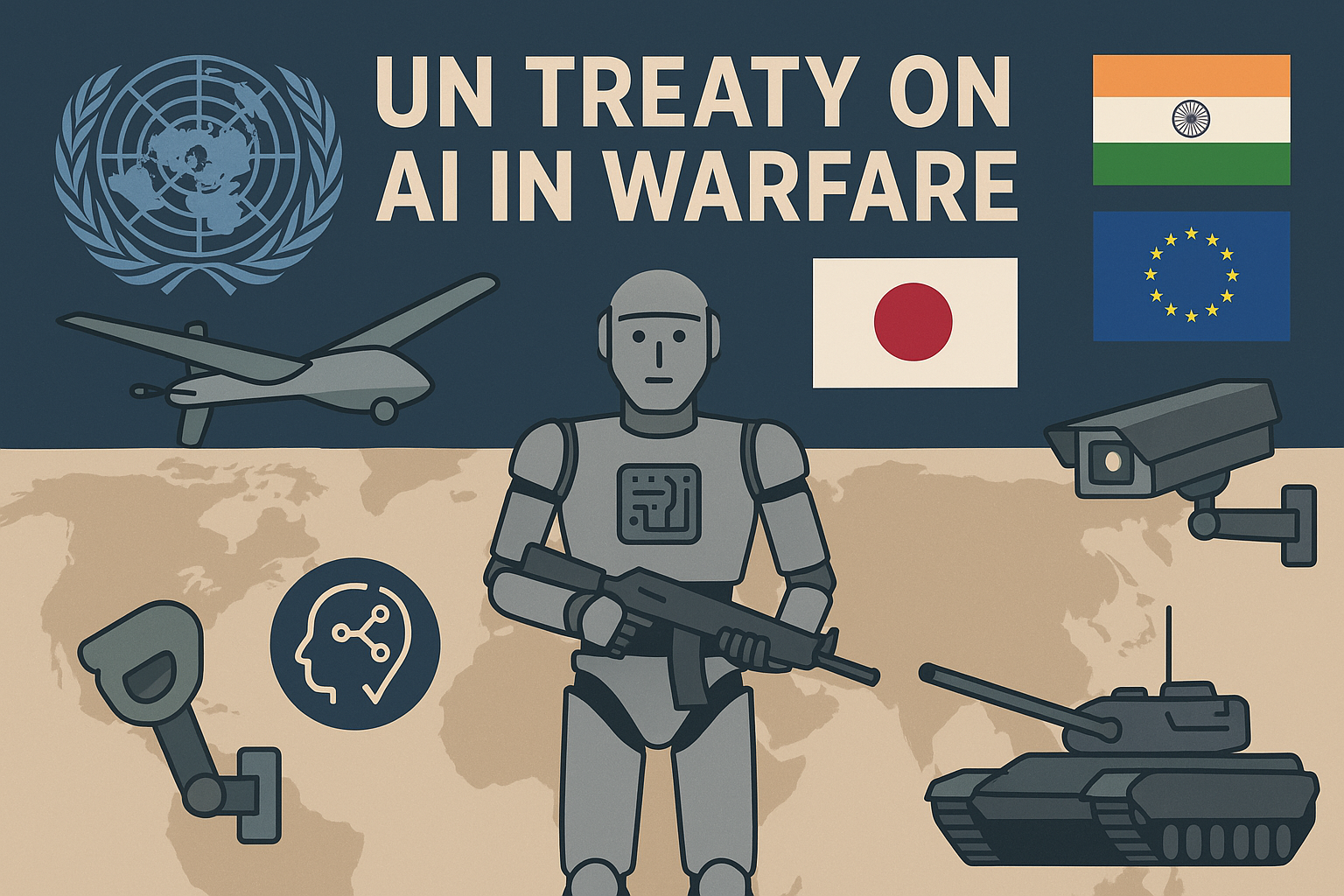
United Nations Adopts Treaty to Regulate AI in Warfare
In a groundbreaking move that reflects rising concerns about the use of Artificial Intelligence (AI) in global military operations, the United Nations has officially adopted a global treaty aimed at regulating AI weapons in warfare. The treaty—negotiated over several months—seeks to impose clear ethical and operational boundaries around the development, deployment, and use of AI in military conflicts.
This decision comes at a time when AI technology is rapidly transforming the nature of warfare, with autonomous drones, intelligent surveillance systems, and AI-powered targeting mechanisms increasingly being integrated into the arsenals of modern armies. While AI has potential to reduce human casualties through precision and speed, experts warn that its unregulated use could lead to grave consequences, including war crimes, mass surveillance abuses, and loss of human accountability in life-and-death decisions.
Key Provisions of the Treaty
The treaty outlines several crucial mandates that member nations must now adhere to:
1. Ban on Fully Autonomous Weapons
The treaty prohibits the development and deployment of fully autonomous weapons systems that can operate without meaningful human control. These systems—often dubbed “killer robots”—are not permitted to make independent “kill decisions.” The treaty asserts that any weapon capable of ending human life must involve human judgment and oversight.
2. Tight Controls on AI Surveillance Tools
In light of the increasing use of AI for mass surveillance and predictive policing, the treaty enforces strict regulations to prevent the misuse of these technologies. Nations are required to ensure that AI systems are not used for large-scale violations of human rights, such as racial profiling, mass detention, or tracking dissidents.
3. Ethical Standards and Transparent Development
Countries must develop AI military systems in accordance with ethical AI principles, which include transparency, accountability, and fairness. Military-grade AI systems must undergo independent audits to ensure they are free from algorithmic bias and have a clear chain of responsibility in case of misuse or malfunction.
Global Support and Divisions
The treaty has been widely praised by international human rights groups, tech ethicists, and peace organizations. Countries like India, Japan, Germany, and members of the European Union were among the first to endorse the agreement, emphasizing that the goal is not to halt innovation, but to place necessary safeguards around a rapidly evolving and potentially dangerous domain.
However, not all nations are fully on board.
• The United States expressed concern over the potential operational limitations the treaty might place on future military capabilities, particularly in maintaining technological superiority.
• China supported certain elements of the treaty but resisted the outright ban on autonomous weapon systems, arguing for “flexible sovereignty” and room for national-level discretion.
Despite these reservations, the treaty passed with a majority consensus and is expected to become a cornerstone in future discussions around AI ethics and warfare.
Why the Treaty Matters
This treaty is not just a legal framework—it’s a philosophical and ethical stance. It acknowledges that even as warfare becomes more technologically advanced, the principles of humanity and dignity must not be sacrificed. By establishing international norms, the UN has sent a strong message: AI should be a tool for protection, not destruction.
Broader Impact
• Encourages innovation with restraint: The treaty promotes responsible AI innovation by discouraging the creation of unregulated killing machines.
• Creates global accountability: Nations are now expected to document their AI military programs and be answerable for any misuse.
• Sets the stage for future treaties: Much like nuclear disarmament agreements, this AI treaty may evolve into a more comprehensive global arms-control framework as technology advances.
As warfare increasingly moves into the digital realm, this treaty is seen as a bold step toward ensuring that artificial intelligence remains under ethical and human control. It’s not just about technology—it’s about what kind of world we want to build.


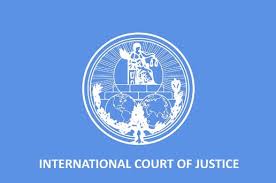
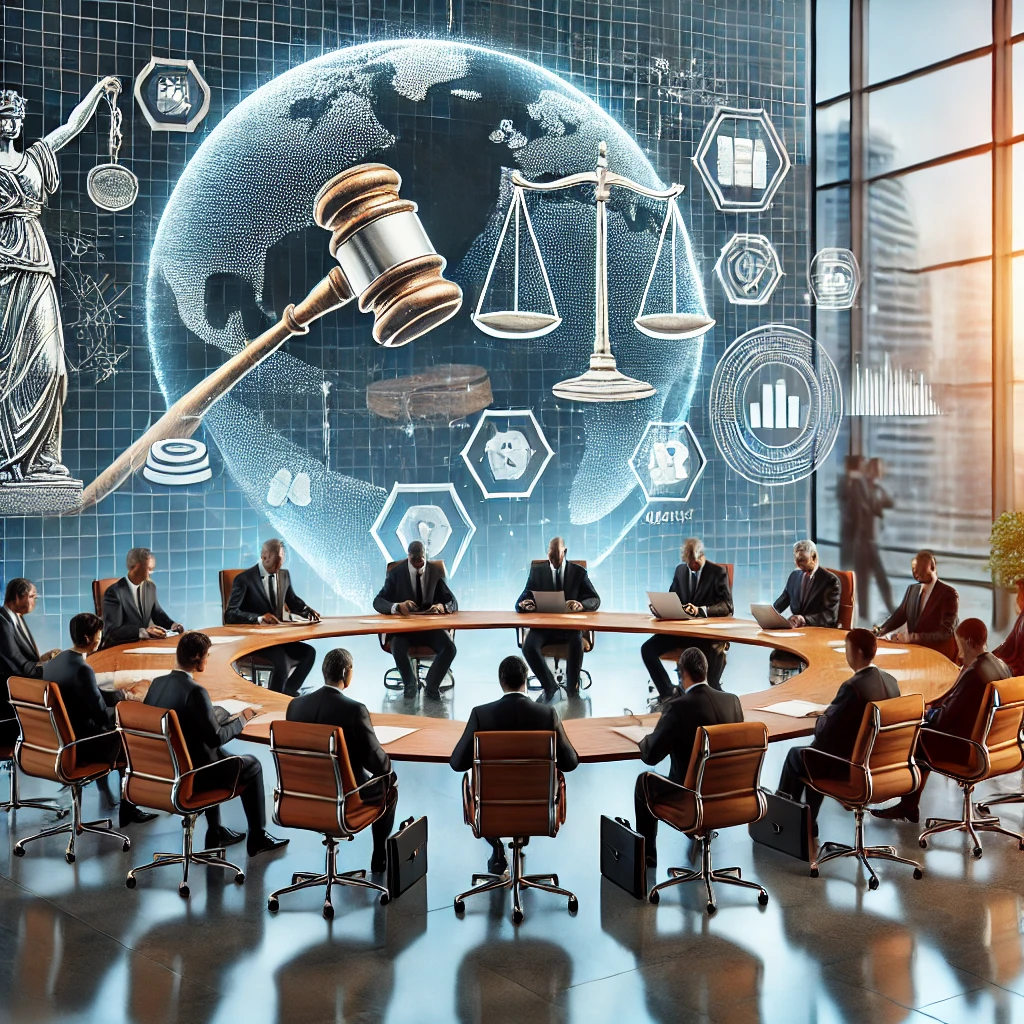
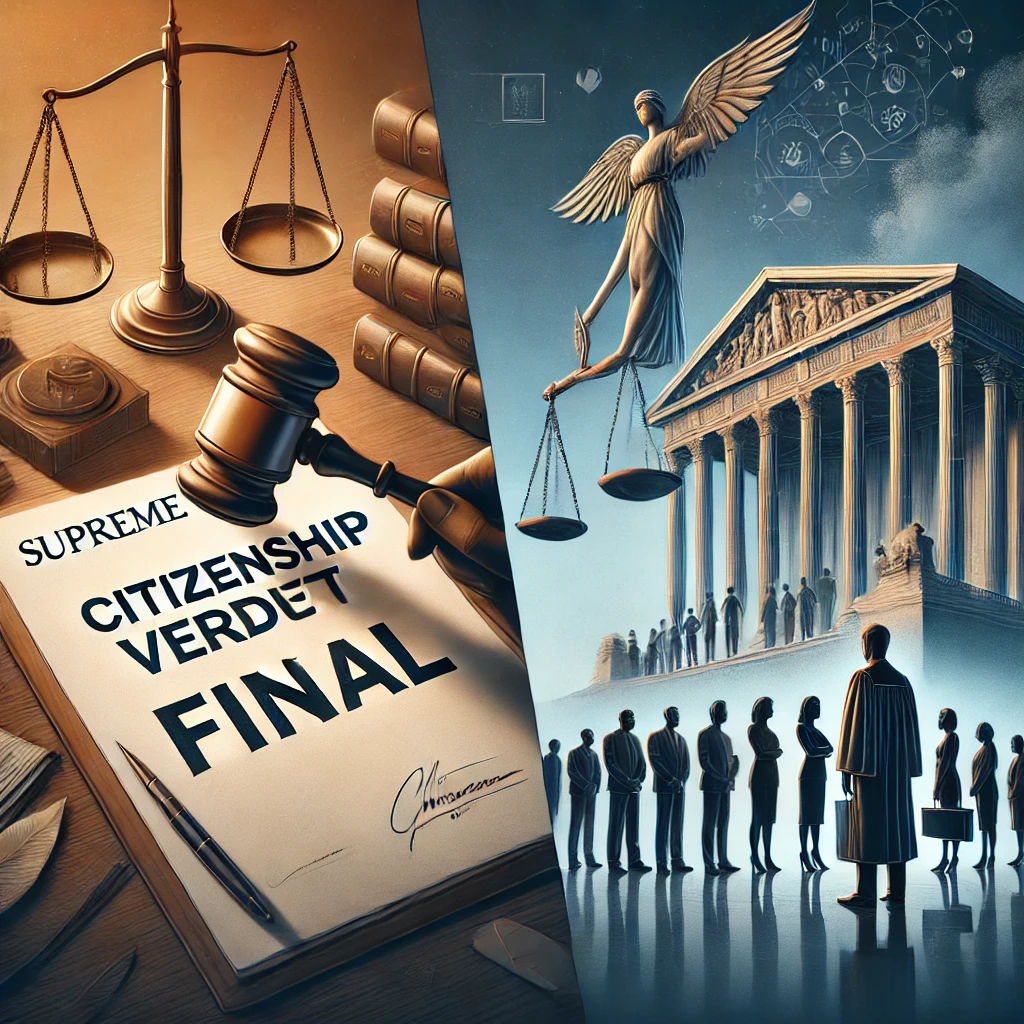
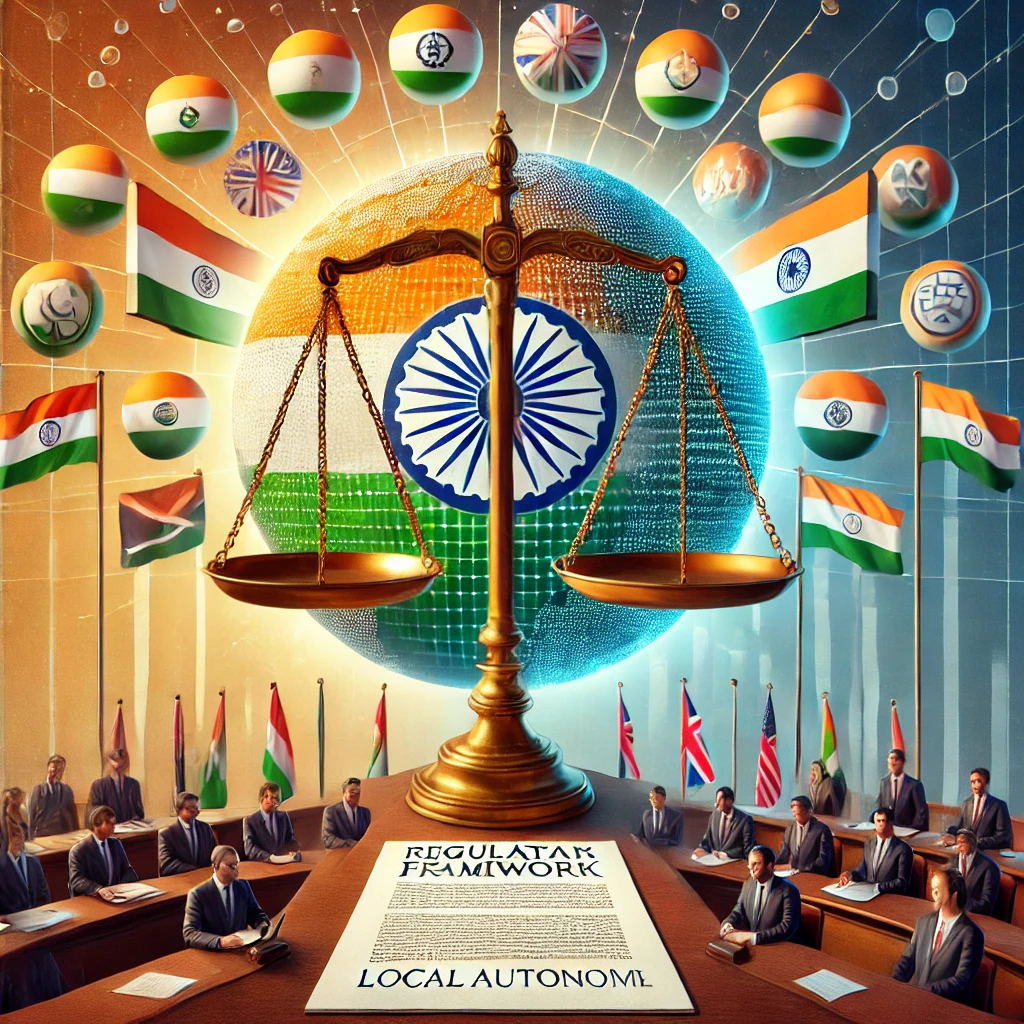



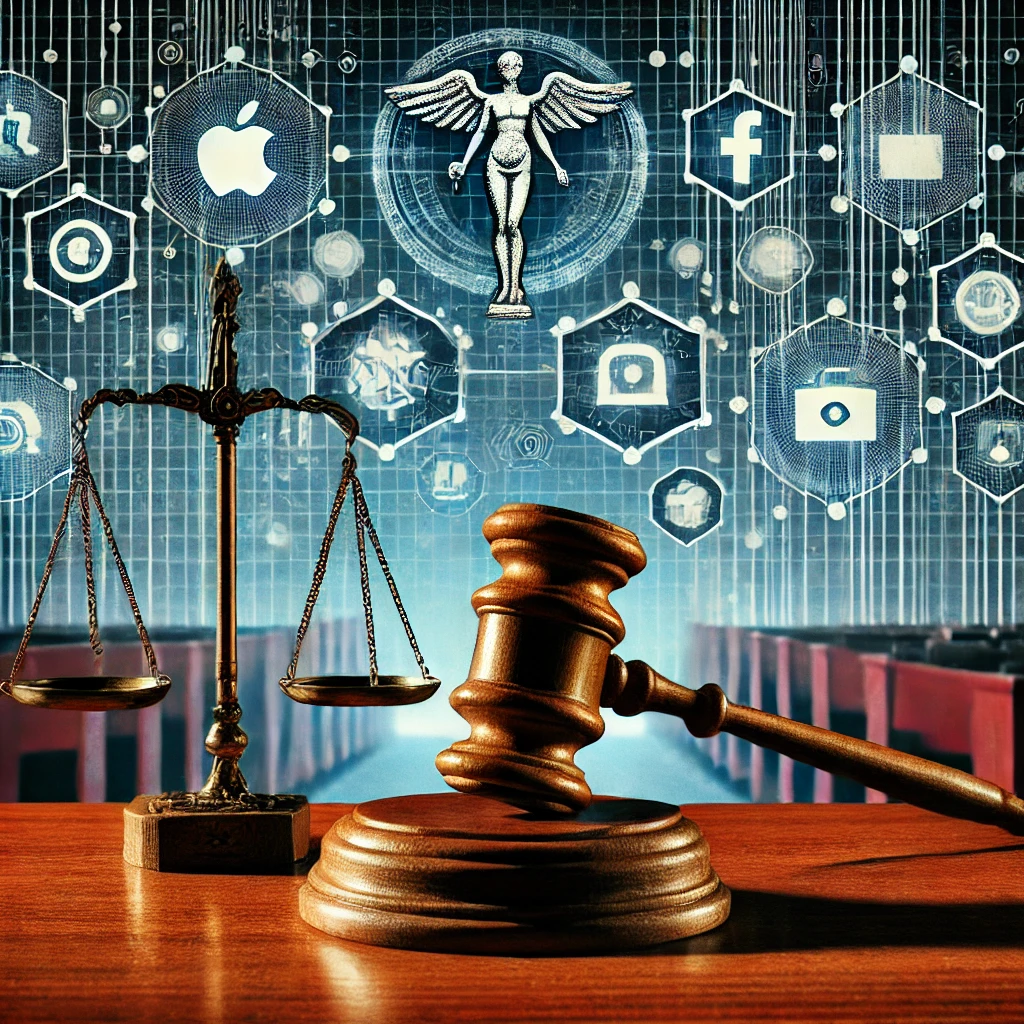


comments